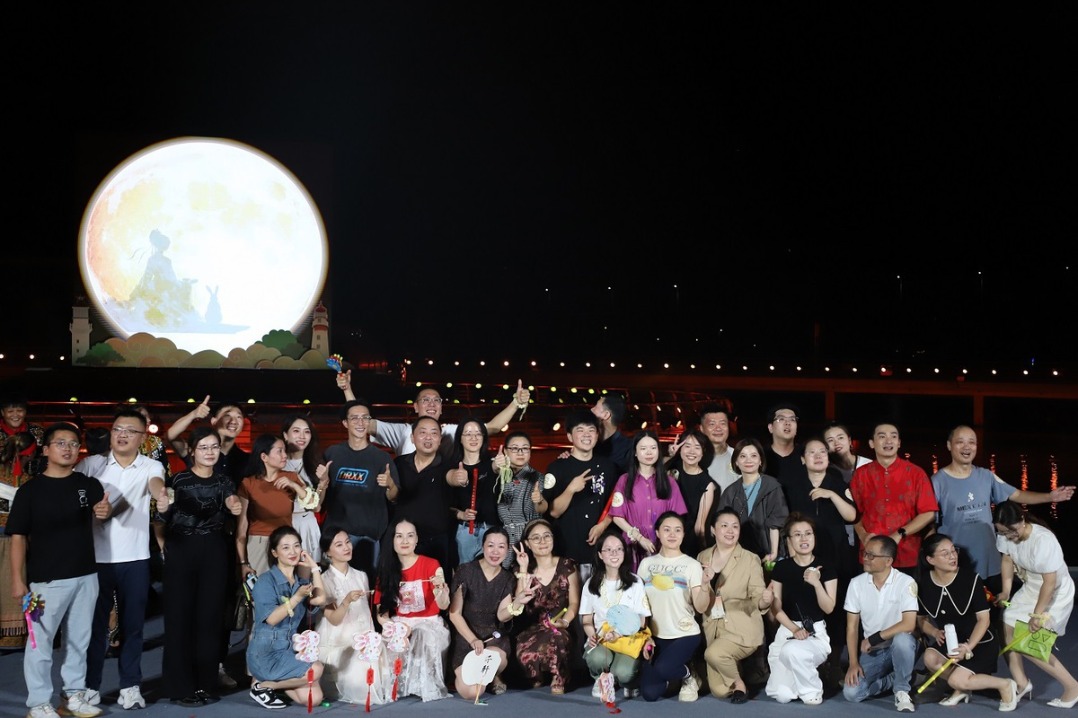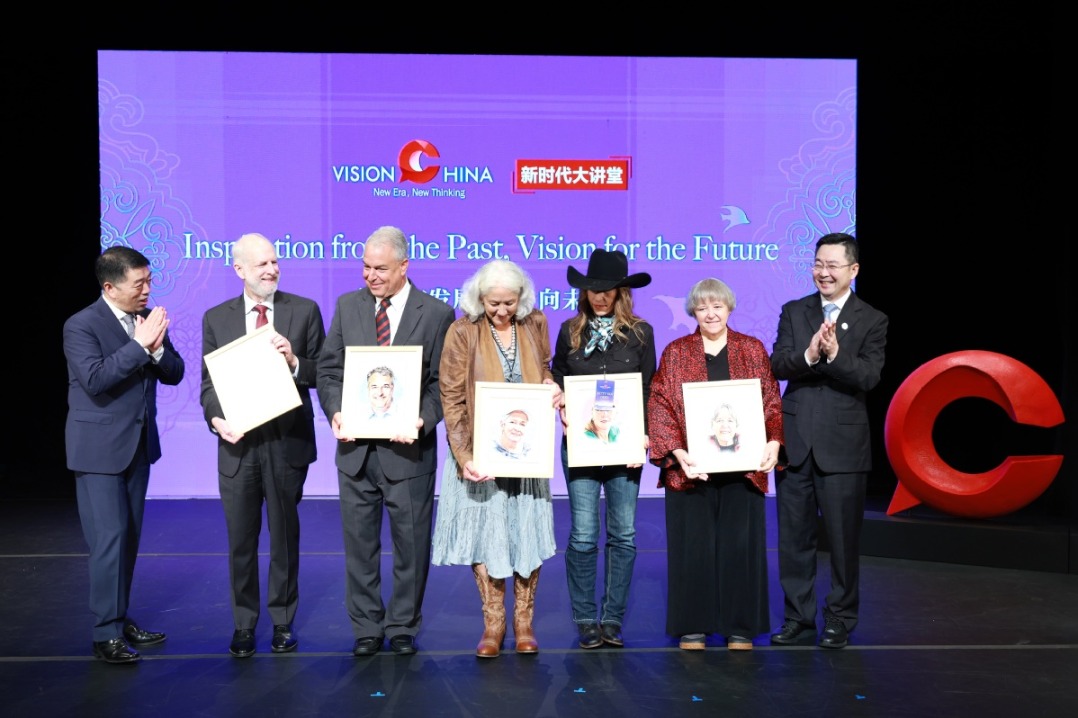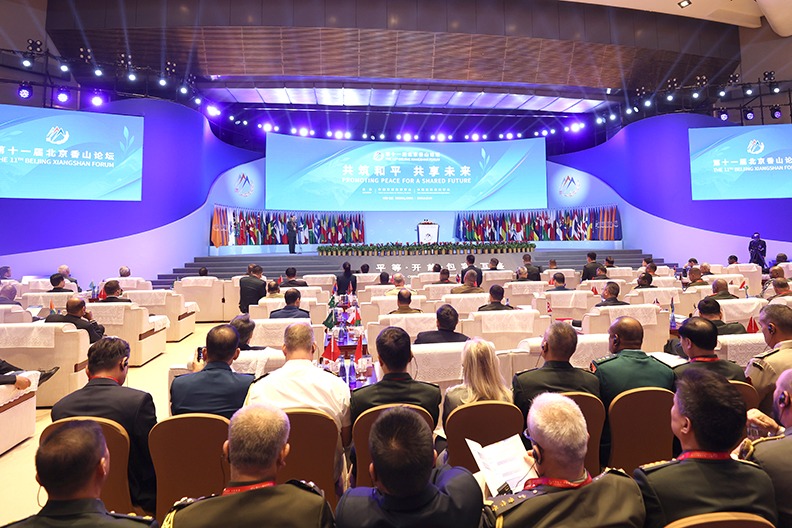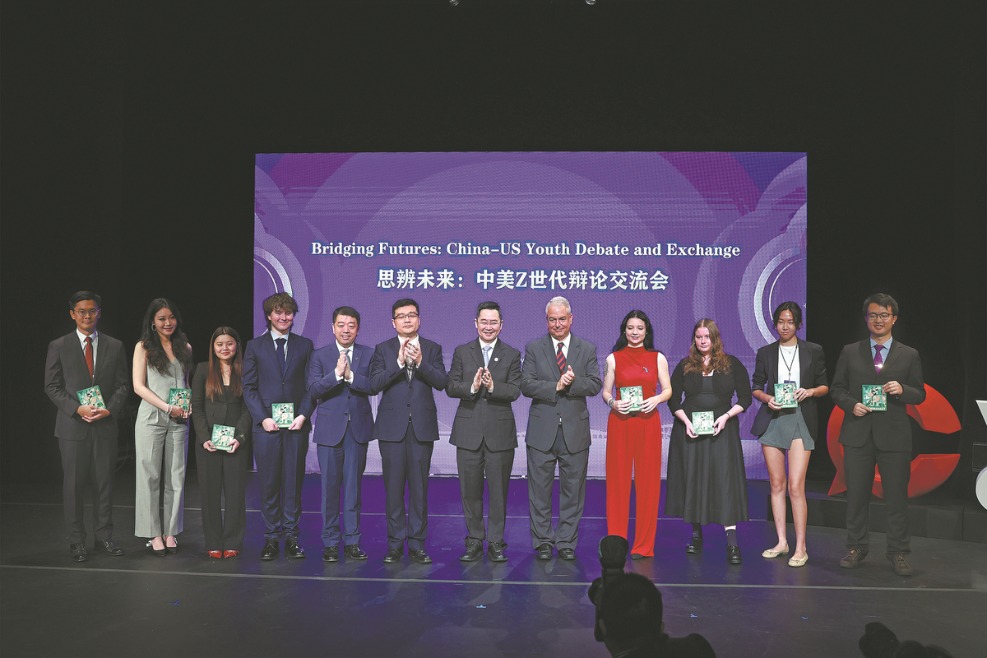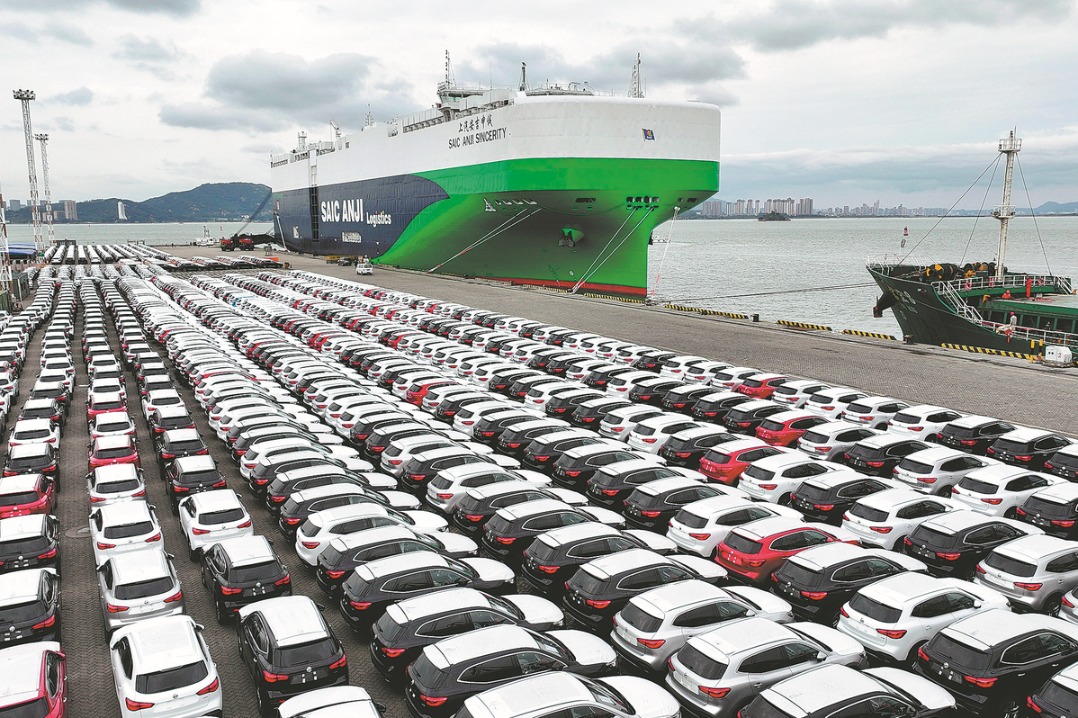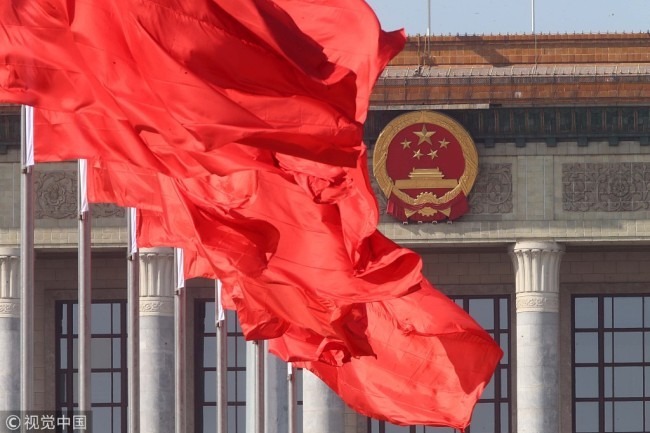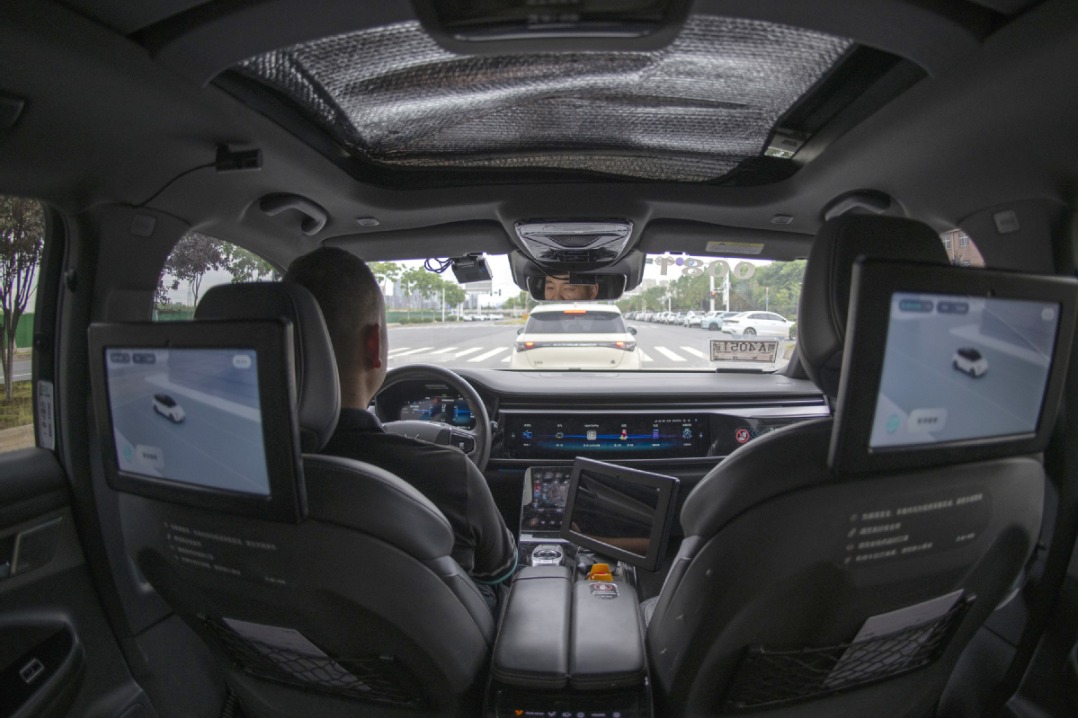Socialism gifts whole-process people's democracy


A fundamental feature of China's political stability and economic development is its socialist system of governance marked by Chinese characteristics and the existence of three bottom-up and top-down feedback loops combining public administrators, experts in different fields and people's representatives from all walks of life.
To understand China's unprecedented economic success, it is necessary to first understand the roles and effectiveness of the economic and social development inputs provided by the three bottom-up and top-down feedback loops operating within the Communist Party of China, the National People's Congress and the National Committee of the Chinese People's Political Consultative Conference.
This year marks the 70th anniversary of the peoples' congress system.
The three loops in the Party, the NPC and the CPPCC National Committee provide continuous bottom-up and top-down feedback for the Party and the government, identifying problems, suggesting ways to solve them, giving public policy advice, and collecting public opinions from the representatives of 1.4 billion Chinese people. This phenomenon is evident in the Party, people's congresses and people's political consultative conferences, from the national down to the village level.
The Party, the NPC and the CPPCC National Committee bring together representative members and leaders chosen based on merit, and enable the three feedback loops to help improve the already effective system of representative and responsible governance.
China has a history of more than 2,000 years of selecting administrative officials through a civil service examination system based on merit. The Party's crucial leadership role is to ensure good governance for the benefit of all Chinese people and make officials "accountable to the people".
The bottom-up and top-down feedback loops of the NPC and the CPPCC National Committee also identify 1.4 billion people's needs and priorities, and shape public policy. They are perceived by foreign observers as merely "rubber stamps" for top-down Party policy decisions. But the reality is that the three information feedback loops work together to create one of the world's most effective systems of representative and responsible government.
Most Americans cannot accept the success of China's governance system. This system has propelled the country's economic development and social progress at a speed, scale and size unprecedented in history.
World Bank studies show China has contributed to almost three-quarters of global poverty alleviation, and its economic growth has been driving global development. In the more than four decades since the launch of reform and opening-up, China has lifted over 800 million people out of extreme poverty. Reform and opening-up have also helped China increase its GDP from $218 billion in 1978 to $17.8 trillion in 2022.
Besides, China has one of the most effective, representative, and responsible governments globally. The success of lifting 800 million people out of poverty is a testament to this. While Westerners may perceive the NPC and the CPPCC National Committee as mere "rubber stamps" of the Communist Party of China, these institutions actually operate as vital feedback loops.
A 2020 Harvard University study, titled "Understanding CCP Resilience: Surveying Chinese Public Opinion Through Time", the longest-running independent study to track Chinese citizens' satisfaction level with the government's performance, shows the percentage of Chinese people satisfied with the government's performance increased from 86 percent in 2000 to 93 percent in 2013.
Moreover, the Democracy Perception Index Report 2022, the world's largest annual study on democracy, said people in China have the highest level of trust in their government in the world. The Chinese people have experienced the results of decades of the poverty alleviation program, which has transformed China from one of the poorest countries to the second-largest economy in the world.
No wonder Chinese people believe their government is indeed people-centric. In contrast, 63 percent of the respondents in the US said the administration serves the wealthy and big corporations, not the general American public.
Also, a Princeton University study's findings suggest the US has turned into a plutocracy, which has not been working well for all Americans. And Harvard Law School professor Steven Lessing's study found that the US is a "limited-process democracy" where citizens have the right to vote, but less than 1 percent of the people control the US' wealth as well as the political system.
China has developed a form of socialist democracy that addresses the deficiencies in other forms of democracy. China describes its unique system of government as whole-process people's democracy, which is people-centric and adheres to socialism with Chinese characteristics. A fundamental difference between the US' limited-process democracy and China's whole-process people's democracy is capital's control over politics and public policy in the US, and socialism's control over capital, politics and public policy in China.
This enables China to promote whole-process people's democracy and people-centric governance for the benefit of all Chinese people.
The author is chairman of the America-China Partnership Foundation. The views don't necessarily reflect those of China Daily.
If you have a specific expertise, or would like to share your thought about our stories, then send us your writings at opinion@chinadaily.com.cn, and comment@chinadaily.com.cn.
















